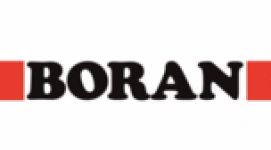
VOCATIONAL SCHOOL
Department of Real Estate Management (Turkish)
MEEY 102 | Course Introduction and Application Information
| Course Name |
Urbanization and Housing Policies
|
|
Code
|
Semester
|
Theory
(hour/week) |
Application/Lab
(hour/week) |
Local Credits
|
ECTS
|
|
MEEY 102
|
Spring
|
3
|
0
|
3
|
3
|
| Prerequisites |
None
|
|||||
| Course Language |
Turkish
|
|||||
| Course Type |
Required
|
|||||
| Course Level |
Short Cycle
|
|||||
| Mode of Delivery | - | |||||
| Teaching Methods and Techniques of the Course | Lecture / Presentation | |||||
| Course Coordinator | - | |||||
| Course Lecturer(s) | ||||||
| Assistant(s) | - | |||||
| Course Objectives | This lecture aims to provide the students with an understanding of concepts such as urban development, development of historical urbanization, urban transformation. |
| Learning Outcomes |
The students who succeeded in this course;
|
| Course Description | This lecture contains the subjects like perception of urban, human and environment, urbanization, globalization, environment and participation, urban transformation. |
|
|
Core Courses |
X
|
| Major Area Courses | ||
| Supportive Courses | ||
| Media and Management Skills Courses | ||
| Transferable Skill Courses |
WEEKLY SUBJECTS AND RELATED PREPARATION STUDIES
| Week | Subjects | Related Preparation |
| 1 | Introduction to the Course, Demand and Expectations, Course Information | |
| 2 | Urban, Urbanization, Housing, Housing Policy Concepts | Erkan, N. E. (2016). Türkiye şehir çalışmaları alanının kavramlar haritası ve tarihi. Strategic Public Management Journal, 3, 43–51. Keleş, R. (1995). Kentleşme ve Türkçe. Dilbilim Araştırmaları Dergisi, 6, 1–5. |
| 3 | Cities in the Historical Process (Ancient City, Medieval City, Industrial City, Global City) and Urbanization | Göğebakan Yüksel (2013) Kültürel Değişim Çerçevesinde Kentlerin Oluşum Süreci ve Çağdaş Kent Sorunsalı , 2147-0936. |
| 4 | Urban Planning | Bademli Raci (2002). Kent Planlama İşliği Notları 35-58., Keleş Ruşen (2016)Şehirciliğin Kuramsal Temelleri (19-90) |
| 5 | Planning Staging, Types of Plans, Legislation Debates | Sevim, B. A. (2010). Walter Benjamin’in kavramlarıyla kültür endüstrisi: “Aura”, “öykü anlatıcısı” ve “flaneur”. Uluslararası Sosyal Araştırmalar Dergisi, 3(11), 509–516. Duru, B. (2001). Gökdelenler ve kent. Prof. Dr. Cevat Geray’a Armağan. Ankara: Mülkiyeliler Birliği Yayınları, 331–362. Demir, S. T. (2017). Modern kültürde kentten kaçmanın ve uzaklara gitmenin sosyolojisi. İnsan & İnsan, 13, 242–252. |
| 6 | Planning Staging, Types of Plans, Legislation Debates | Yükselbaba, Ü. (2008). Kamusal alan modelleri ve modellerin bağlamları. İstanbul Üniversitesi Hukuk Fakültesi Mecmuası, 66(2), 227–271. Olgun, H. B. (2017). Jürgen Habermas, Hannah Arendt ve Richard Sennett’in kamusal alan yaklaşımları. Sosyolojik Düşün, 2(1), 45–54. Harvey, D. (2002). Sınıfsal yapı ve mekânsal farklılaşma kuramı. Alkan, A., & Duru, B. (Der., ve Çev.), 20. Yüzyıl Kenti. Ankara: İmge Yayınevi. |
| 7 | Housing in Urban Planning | Öztürk, S., & Osmanoğulları, F. (2016). ‘Blue in the face’ filmi ve modernizm: Kentlilik ve aidiyet üzerinden bir değerlendirme. Mediterranean Journal of Humanities, 1, 261–274. |
| 8 | Midterm exam | |
| 9 | Housing Problem and Slum | Gürkaynak, İ. (1983). Çevresel psikoloji: Doğası, tarihçesi, yöntemleri. Ankara Üniversitesi Eğitim Bilimleri Dergisi, 21(1), 1–9. Işıkpınar, E. M. (2012). Şehirler ve çevresel psikoloji. Sosyoloji Dergisi, 3(9), 63–106. Türksoy, Ö. (1986). Çevresel psikoloji, planlama ve bütünleşme. Planlama, 1, 13–17. Yetkin, E., & Yıldırım, M. T. (2017). Ankara’da orta ve üst gelir grubu toplu konut alanlarının çevresel psikoloji bağlamında karşılaştırılması. Gazi Üniversitesi Fen Bilimleri Dergisi Part C: Tasarım ve Teknoloji, 5(3), 37–50. |
| 10 | Investigation of Housing Policy in Turkey | Çalğıcı, P. K. (2013). Çevre psikolojisi kavramlarıyla bir filmin analizi: THX 1138. METU JFA, 30(2), 63–80. |
| 11 | Establishment of TOKİ and Mass Housing Law | Memişoğlu, D., & Kalağan, G. (2016). Yaratıcı kentler ve kentsel yetenek üzerine bir tartışma. İnsan ve Toplum Araştırmaları Dergisi, 6(1), 519–536. Kerimoğlu, E. (2017). Yaratıcı ekonominin kentsel alandaki varlığı: Plancının rolü ve farkındalık üzerine. Görüş, 27(2), 109–114. Kaypak, Ş. (2013). Küreselleşme sürecinde kentlerin markalaşması ve “marka kentler”. CÜ İktisadi ve İdari Bilimler Dergisi, 14(1), 335–355. Tekin, N. (2012). Tüketim temelli hayat tarzları ve gösteri mekânı olarak kentler. Galatasaray Üniversitesi İletişim Dergisi, 2, 69–83. |
| 12 | Concept of Urban Transformation and Legislation of Urban Transformation in Turkey | Çoban, A. N. (2012). Cumhuriyet ilanından günümüze konut politikası. Ankara Üniversitesi SBF Dergisi, 67(3), 75–108. Tunçer, P. (2015). Türkiye’de kentleşme politikaları. The Journal of Academic Social Science Studies, 37, 275–290. Durguter, H. (2012). Kent modelleri ve sürdürülebilir kent yönetimi. Turkish Studies, 7(3), 1053–1065. |
| 13 | Examination Of The Urbanization History Of Izmir | Akkar, Z. M. (2006). Kentsel dönüşüm üzerine Batı’daki kavramlar, tanımlar, süreçler ve Türkiye. Planlama, 2, 29–38. Bahçeci, H. I. (2017). Neoliberalizmin kentsel mekândaki tezahürü olarak kentsel dönüşüm. Journal of International Management, Educational and Economic Perspectives, 5(1), 36–47. Genç, F. N. (2008). Türkiye’de kentsel dönüşüm: Mevzuat ve uygulamaların genel görünümü. Yönetim ve Ekonomi, 15(1), 115–130. Koçak, H. (2011). Kent-kültür ilişkisi bağlamında Türkiye’de değişen ve dönüşen kentler. Sosyal Bilimler Araştırmaları Dergisi II, 259–269. |
| 14 | Discussion of Urban Transformation Areas and Projects in İzmir | Ak, D. (2013). Kentler arası rekabette İzmir’in yeri. Ekonomi Bilimleri Dergisi, 5(1), 29–43. Tatlıdil, E. (2009). Kent ve kentli kimliği: İzmir örneği. Ege Akademik Bakış, 9(1), 319–336. Karadağ, A., & Mirioğlu, G. (2014). Türkiye’de kentsel dönüşüm politikaları ve uygulamaları üzerine coğrafi değerlendirmeler: İzmir örneği. Ege Coğrafya Dergisi, 20(2), 41–57. Özısık, F. U. (2012). Küreselleşme–yerleşme sürecinde kentsel yönetişim: Kalkınma ajansları ve İzmir örneği. Kent Kültürü ve Yönetimi Hakemli Elektronik Dergi, 5(4), 129–145. Soğukuyu, B., & Tunç, A. Z. (2013). Kent kültürüne ve toplumsal yapıya bağlı olarak kentte tipografinin kullanımı (İzmir ve Milano örnekleri). SDÜ GSF Hakemli Dergisi ART–E, 12, 153–172. |
| 15 | Review of the course | |
| 16 | Final exam |
| Course Notes/Textbooks | KELEŞ, Ruşen, Kentleşme ve Konut Politikası, SBF Yayınları, Ankara, 1984. |
| Suggested Readings/Materials |
EVALUATION SYSTEM
| Semester Activities | Number | Weigthing |
| Participation |
1
|
15
|
| Laboratory / Application | ||
| Field Work | ||
| Quizzes / Studio Critiques |
1
|
15
|
| Portfolio | ||
| Homework / Assignments |
1
|
10
|
| Presentation / Jury | ||
| Project | ||
| Seminar / Workshop | ||
| Oral Exams | ||
| Midterm |
1
|
20
|
| Final Exam |
1
|
40
|
| Total |
| Weighting of Semester Activities on the Final Grade |
4
|
60
|
| Weighting of End-of-Semester Activities on the Final Grade |
1
|
40
|
| Total |
ECTS / WORKLOAD TABLE
| Semester Activities | Number | Duration (Hours) | Workload |
|---|---|---|---|
| Theoretical Course Hours (Including exam week: 16 x total hours) |
16
|
3
|
48
|
| Laboratory / Application Hours (Including exam week: '.16.' x total hours) |
16
|
0
|
|
| Study Hours Out of Class |
16
|
2
|
32
|
| Field Work |
0
|
||
| Quizzes / Studio Critiques |
1
|
2
|
2
|
| Portfolio |
0
|
||
| Homework / Assignments |
1
|
2
|
2
|
| Presentation / Jury |
0
|
||
| Project |
0
|
||
| Seminar / Workshop |
0
|
||
| Oral Exam |
0
|
||
| Midterms |
1
|
2
|
2
|
| Final Exam |
1
|
4
|
4
|
| Total |
90
|
COURSE LEARNING OUTCOMES AND PROGRAM QUALIFICATIONS RELATIONSHIP
|
#
|
Program Competencies/Outcomes |
* Contribution Level
|
||||
|
1
|
2
|
3
|
4
|
5
|
||
| 1 | To have the knowledge and skills on real estate and its management. |
X | ||||
| 2 | To follow recent developments about real estate and real estate management. |
X | ||||
| 3 | To be able take part in team work and have the characteristics of a leader. |
X | ||||
| 4 | To have professional and ethical responsibility. |
|||||
| 5 | To have the expertise in technological developments in real estate and real estate management field and try to improve it constantly. |
|||||
| 6 | To be aware of the importance for lifelong learning; follow scientific and technological developments. |
X | ||||
| 7 | To have effective verbal and written communication skills. |
|||||
| 8 | To know and apply the professional ethical codes of real estate and real estate management and auditing in business life and act according to social, scientific and ethical values under any circumstances such as data collection, evaluation, announcing and practicing. |
|||||
| 9 | To have the ability to work effectively in multi-disciplinary areas and apply them in the work environment. |
|||||
| 10 | To be aware of the sales organizations, sales management and sales techniquesand manage the sales process and solve the possible problems that may arise. |
|||||
*1 Lowest, 2 Low, 3 Average, 4 High, 5 Highest


